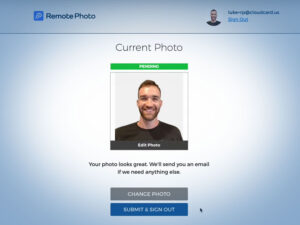With the extreme rise in technological advancement, many organizations are shifting to digital identification solutions to protect their operations, an evolution that has increased transparency and security across businesses today.
It’s already apparent how digitalization is driving and reshaping the healthcare industry, resulting in improved methods of delivering top-notch patient service. In fact, more healthcare executives confirm that their organization’s primary digital transformation goal is promoting patient access to health care services.
Beyond just encouraging patients to schedule appointments or view medical records, the objective is to provide patients with easy digital access to every resource they may need throughout their healthcare journey.
1) Advanced Data Management
Keeping digital records is the best way for healthcare centers to eliminate paper documentation, introducing orderliness and organization into day-to-day routines and protocols.
More importantly, the introduction of digitalization ensures almost total eradication of errors during documentation and record-keeping.
In a situation that requires an immediate response, such as a medical emergency, an urgent care team can make use of their electronic devices to access a patient’s records instead of rummaging through the files in a drawer or manually searching through a lengthy database.
2) Prompt Responses to Patient Inquiries
With mobile devices, it becomes much easier for patients to voice their complaints and problems and receive professional feedback almost immediately, as long as they can identify as a patient. Rather than having to visit a doctor’s office or be physically present in a hospital, patients can obtain all the information they seek with just a few taps on their mobile devices. This swift service enables the patients to receive the attention they require promptly.
3) Positive Influence on Patient Healthcare
The digitization of healthcare will create a better relationship between healthcare providers and their patients because these systems are designed with transparency and security at their core, resulting in increased trust by patients, who in turn feel more compelled to open up to their doctors about issues, questions, and uncertainties that may arise throughout their medical journey. More often than not, patients don’t request medical care until they find themselves in a lamentable predicament, but with proper identification and digital records that track our medical history, it’s easier to foster productive communication and access solutions that work best for us.
4) Minimizes Identity Fraud & HIPAA Compliance Risks
Most healthcare facilities have paperwork floating around and unsecured management systems that may put patient privacy data at risk of exploitation. A secure digital solution would not only ensure that patients’ information is less likely to fall into the hands of the wrong person, but that medical centers are complying with HIPAA regulations, as well.
Digital Identification Solutions from the ISG
Technology is altering our day-to-day activities by accelerating our ability to perform at higher rates than before, but at the same time, also increasing our vulnerability to digital attacks. The healthcare sector is an essential part of our lives, which is why it’s critical that advancements such as digital identification are employed properly to make processes easier and safer for all.
When considering ways to improve the patient experience and a medical organization’s operational needs, it’s important to start with the basics that cover the most ground – digital identification systems.
Contact us today to find your local ISG member dealer and start the conversation about this and any other identification, access control or tracking need you might have.
Original article written by Akash Takyar for LeewayHertz.


